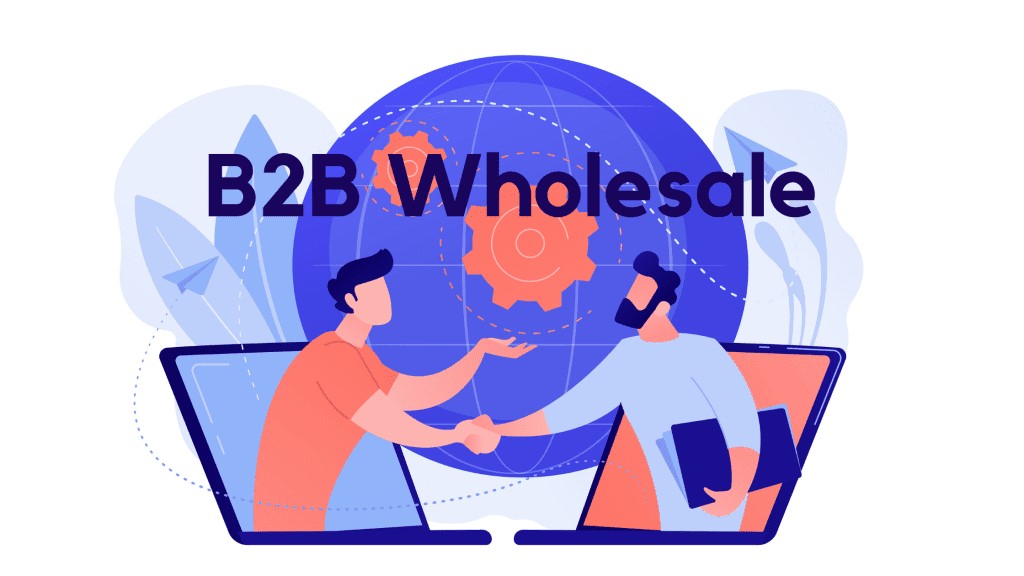 Effective B2B wholesale strategies are critical for ensuring sustainable growth and competitiveness. The wholesale industry, especially in the business-to-business (B2B) segment, is undergoing significant transformations due to technological advancements, supply chain disruptions, and shifting consumer expectations. Companies that adapt to these changes by refining their B2B wholesale strategies can unlock new opportunities and improve profitability. Below you’ll find key strategies to help wholesalers thrive in 2024 and beyond.
Effective B2B wholesale strategies are critical for ensuring sustainable growth and competitiveness. The wholesale industry, especially in the business-to-business (B2B) segment, is undergoing significant transformations due to technological advancements, supply chain disruptions, and shifting consumer expectations. Companies that adapt to these changes by refining their B2B wholesale strategies can unlock new opportunities and improve profitability. Below you’ll find key strategies to help wholesalers thrive in 2024 and beyond.
Embracing Digital Transformation
Digitalization is not a temporary trend but a fundamental shift in how wholesale businesses operate. A robust digital presence is essential for wholesalers looking to compete in today’s market. The integration of e-commerce platforms has made it easier for retailers to source products globally. To keep pace with this digital revolution, wholesalers must provide a seamless online buying experience, complete with easy payment options, transparent shipping timelines, and tailored product recommendations.
Moreover, leveraging big data analytics and automation tools, such as AI-driven customer service bots, enhances operational efficiency and customer satisfaction. Wholesalers who embrace digitalization can streamline inventory management, optimize pricing strategies, and improve their supply chain processes, leading to increased profitability. According to recent reports, adopting advanced technologies like artificial intelligence and cloud-based systems has become essential for success in the B2B space.
Personalization in B2B Wholesale
Personalization has traditionally been tied to B2C, but it is now crucial for B2B wholesale strategies. Today’s buyers demand customized experiences and unique solutions, pushing wholesalers to invest in personalized communication and pricing. Targeted marketing campaigns are also necessary to meet these expectations. By leveraging data analytics to assess preferences and buying behaviors, wholesalers can provide solutions that meet clients’ specific needs.
Building personalized relationships with clients enhances satisfaction and drives long-term loyalty. Additionally, these strong relationships lead to increased repeat business and customer retention. This shift towards personalization is reshaping the B2B landscape, requiring wholesalers to adopt a more client-centric approach in 2024.
Supply Chain Resilience and Sustainability
Supply chain disruptions have become a constant challenge for B2B wholesalers. From geopolitical conflicts to global pandemics, external factors can significantly impact supply chain efficiency. Therefore, building a resilient supply chain is a top priority for wholesale businesses. Companies must implement agile strategies that allow for quick adjustments in sourcing, distribution, and manufacturing activities.
Additionally, there is increasing pressure to incorporate sustainable practices into the supply chain. Businesses are exploring eco-friendly packaging, waste reduction methods, and ethical sourcing to meet regulatory requirements and consumer demand for sustainable products. Not only do these initiatives benefit the environment, but they also improve a company’s reputation and appeal to a growing base of environmentally conscious customers.
Optimizing Inventory Management
Effective inventory management remains a cornerstone of successful B2B wholesale operations. Wholesalers must balance inventory levels to avoid both overstocking and stockouts, which can result in lost sales or wasted capital. Implementing technology-driven solutions like enterprise resource planning (ERP) systems can provide real-time visibility into inventory, enabling wholesalers to adjust stock levels based on demand forecasts.
Technologies like Just-in-Time (JIT) inventory and automated ordering systems can further optimize inventory management, reducing costs while ensuring timely order fulfillment. In 2024, wholesalers who master the balance between demand forecasting and inventory control will maintain a competitive edge.
Enhancing Multichannel and Omnichannel Strategies
In 2024, having a multichannel or omnichannel strategy is essential for wholesalers aiming to reach diverse customer bases. Businesses today expect seamless interactions across multiple touchpoints, whether it’s through an e-commerce platform, direct sales, or traditional retail channels. Integrating all these channels into a cohesive strategy allows for a unified customer journey, enabling businesses to meet clients where they are most comfortable.
Wholesalers must prioritize real-time synchronization of inventory, customer data, and order fulfillment across all channels. By doing so, they can provide a consistent and efficient buying experience, increasing customer satisfaction and driving sales growth.
Leveraging Automation and AI
Automation and artificial intelligence (AI) are becoming indispensable tools for B2B wholesalers looking to increase efficiency and reduce operational costs. AI-powered analytics provide deeper insights into customer behavior, market trends, and supply chain efficiency, enabling wholesalers to make data-driven decisions.
Automated systems also play a crucial role in inventory management, order processing, and customer service. For example, AI chatbots can handle routine inquiries, freeing up staff to focus on higher-value tasks. Furthermore, the adoption of automated systems reduces human error, accelerates processes, and ultimately leads to a more streamlined and scalable business model.
Fostering Long-Term Relationships and Partnerships
B2B wholesale is built on relationships, and developing long-term partnerships with clients is key to sustained success. Wholesalers need to focus on nurturing their relationships by offering exceptional service, maintaining open lines of communication, and understanding their clients’ evolving needs.
In addition, wholesalers can benefit from forming strategic partnerships with suppliers, logistics providers, and technology vendors. These partnerships can help wholesalers expand their reach, improve service delivery, and leverage new technologies to stay ahead of the competition. A strong network of reliable partners is essential for mitigating risks and ensuring smooth operations.
B2B wholesale strategies must evolve to address the changing dynamics of the marketplace. By embracing digital transformation, personalizing customer experiences, and strengthening supply chain resilience, wholesalers can enhance their competitive positioning. Moreover, adopting automation, optimizing inventory management, and fostering long-term relationships are crucial steps toward achieving sustainable growth. As we move further into 2024, the businesses that are most adaptable to change and proactive in their strategy implementation will be the ones that thrive.

